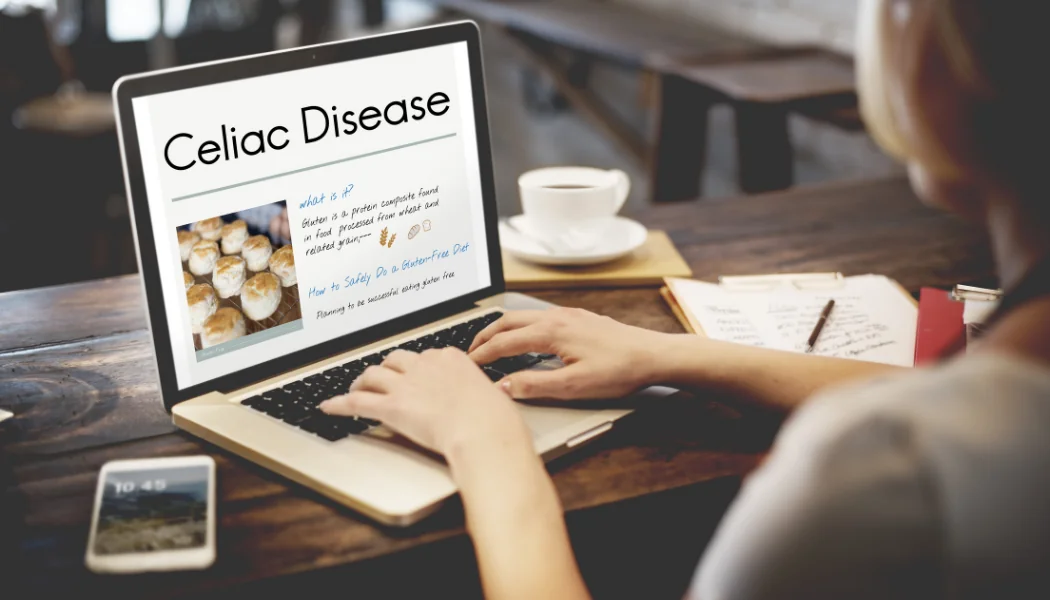Celiac Disease and Cancer: What’s the Connection?

Did you know 1 in 133 Americans has celiac disease?
Celiac disease is an immune reaction to eating gluten, a protein found in wheat, barley, and rye. Unfortunately, research shows that people with celiac disease are at a higher risk of developing three types of cancer.
Who is affected by celiac disease?
Celiac disease is a serious genetic autoimmune disease that damages the small intestine and interferes with the absorption of nutrients from food. It can affect both children and adults, but the symptoms vary depending on age.
Adults living with celiac disease often experience:
- Diarrhea
- Anemia
- Loss of bone density
- Rashes
- Mouth Ulcers
- Fatigue
- Weight loss
- Bloating
- Gas
- Headaches
- Abdomen pain
- Nausea
- Joint pain
- Vomiting and
- Constipation
Children are more likely than adults to have digestive problems, including:
- Nausea
- Vomiting
- Chronic diarrhea
- Swollen belly
- Constipation
- Gas and
- Pale, foul-smelling stools.
The inability for children to absorb nutrients because of celiac disease can cause long-term effects detrimental to their health, such as failure to thrive for infants, damage to tooth enamel, weight loss, anemia, delayed puberty, and neurological symptoms.
What causes celiac disease, and how is it cured?
Unfortunately, celiac disease’s precise cause is unknown, and there is no cure or treatment other than removing gluten from one’s diet. Researchers have identified potential contributing factors to developing celiac disease, such as an individual’s genes, eating foods with gluten, infant-feeding practices, gastrointestinal infections, and gut bacteria.
Celiac disease tends to be more common in people who have:
- a family history of celiac disease
- type 1 diabetes
- Down syndrome
- Turner syndrome
- autoimmune thyroid disease
- microscopic colitis
- Addison’s disease
What is the link between celiac disease and cancer?
There are three types of cancer associated with celiac disease:
- enteropathy-associated T-cell lymphoma (EATL)
- non-Hodgkin’s lymphoma
- Adenocarcinoma of the small intestine
The disease does not cause these cancers, but there is an increased risk if an individual has celiac disease. Studies have found that the risk of lymphoma is slightly higher among people with celiac disease than the rest of the population. The overall risk varies person-to-person, but those with more intestinal damage have been found to be a higher risk.
For those living with celiac disease, it is essential to follow a strict gluten-free diet. Doing so protects the intestine and, in turn, reduces the risk of developing cancer. More restaurants and food bloggers have been incorporating gluten-free options into the public eye, making it easier than ever to enjoy some classic meals without gluten. Whether or not you are diagnosed with celiac disease, try baking some delightful, gluten-free, and plant-based brownies. You might not be able to tell the difference!
Gluten-Free and Plant-Based Brownies
Ingredients*
- 2 cups gluten-free flour mix (found at any major grocery store in the baking aisle)
- 2 cups sugar
- 3/4 cup cacao powder
- 1 teaspoon baking powder
- 1 teaspoon salt
- 1 cup water
- 1 cup oil
- 1 1/2 teaspoon vanilla extract
- 1/4 cup creamy nut butter
Method
- Preheat oven to 350°. Lightly grease a 9×13 metal baking pan and coat with flour or cacao powder.
- In a mixer bowl, add flour, sugar, cacao, baking powder, and salt. Gently whisk together.
- Add in water, oil, and vanilla, then using a whisk attachment, mix until blended.
- Pour into the prepared baking pan, and spread evenly. Drop teaspoon-sized amounts of nut butter evenly spaced on the top of brownie batter, then using a knife, drag it through the nut butter, creating a swirl pattern.
- Bake 25-30 minutes. The top will be cracked, and the center will come out clean when inserted with a toothpick. Let cool 20 minutes, then cut and serve.
*Always be sure to check the product ingredient list to ensure it is 100% gluten-free.
Sign-up to Stay Informed About Cancer Research Breakthroughs with NFCR!
A world without cancer is possible. Help us turn lab breakthroughs into life-saving realities.

5.7 Million+
Donors who have fueled NFCR’s mission

$420 Million+
Invested in high-impact research & programs

36+ Labs & Hundreds of
Nobel Laureates & Key Scientists received NFCR funding, driving breakthrough research












